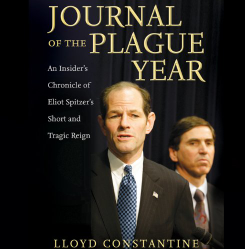Your privacy, and the expectation that it is secure, took a massive hit April 29. It came from state and federal prosecutors arguing Riley v. California before the U.S. Supreme Court.
In the Riley case, California’s solicitor general and a deputy U.S. solicitor general argued that, when someone is arrested, even for a minor offense like failing to buckle up, the police must be free to search, without warrant, through the entire contents of a smartphone, tablet or laptop in the pocket, backpack, briefcase or vehicle of the suspect.
Fair game for law enforcement are all the files, photos, videos, emails and texts, including the metadata disclosing where and when the suspect traveled and produced or received the voluminous digital content on these powerful portable computers.
The Fourth Amendment prohibits, and formerly was interpreted to protect against, warrantless searches of our “houses” but also “papers and effects” whether or not stored at home.
But, as the variety and volume of such papers and personal information have increased exponentially, the confidential status previously accorded to them steadily evaporates.
As is known, using E-ZPass on a highway, gives police the details of where and when we drive.
Now prosecutors want us to realize that driving with an expired registration, as David Leon Riley did, means police can seize his smartphone, take it back to the station and, without warrant, roam through his photos, messages and files, hours later, until they find evidence implicating him in something else — in his case, gang criminality. Sisters and brothers, what’s in your photos, files and messages?
Of course, there is some chance the justices will give voracious police less than what their lawyers told the court they must have to protect themselves and the public when making an arrest.
If the court is to resist prosecutorial demands, I wouldn’t count on Justice Anthony Kennedy’s vote.
In 2012, he authored the court’s disgraceful decision in Florence v. Board of Chosen Freeholders, sanctioning a full strip search of people arrested for no seatbelt and broken bicycle bell offenses (“Watch out for Kennedy,” April 29, 2012). During the Riley argument, Justice Kennedy proudly admonished one advocate trying to make a distinction between “serious and non-serious offenses” that “I don’t think that exists in our jurisprudence.”
Hope in Riley resides with the court’s liberal foursome of Justices Stephen Breyer, Ruth Bader Ginsburg, Sonia Sotomayor and Elena Kagan, who might be joined by Justice Antonin Scalia and/or Chief Justice John Roberts their questions, these two conservatives showed clear discomfort with the sweeping and insatiable prosecutorial appetite on display. The six justices repeatedly questioned how searching a smartphone’s contents, without a warrant, would further the goals of protecting the arresting officer or inhibiting the commission of a crime, especially when the phone is already in police custody and probed hours later.
The prosecutors’ hypothetical responses were ludicrous, as they were in 2012, when they explained why seatbelt offenders must have their body cavities probed lest they use them to sneak contraband into jails.
Ironically, as arguments proceeded in Washington, D.C. for Riley and a closely related search and seizure case (United States v. Wurie), NBA Commissioner Adam Silver was just up Route 95 in Manhattan, pronouncing the league’s functional death penalty on racist Los Angeles Clippers owner, Donald Sterling for words he uttered to a lady friend in a private conversation that was apparently taped illegally.
Who among us could withstand scrutiny of our private conversations with family, friends and work associates?
All in all, April 29, 2014, was a bad day for the Constitution and our shrinking right of privacy.


0 Comments